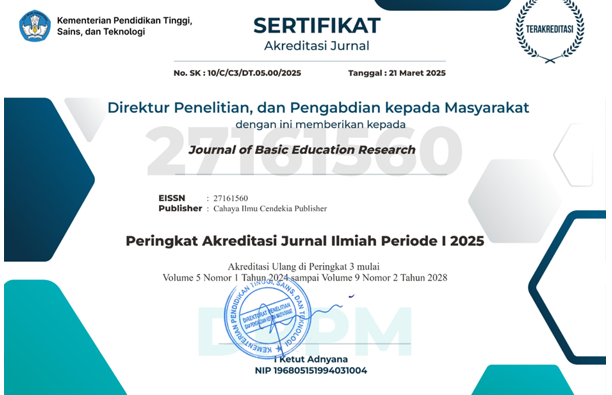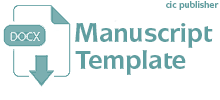ChatGPT in STEM Classrooms: Students’ Perceptions of Interest, Academic Proficiency, and Learning Independence
Abstract
Purpose of the study: To provide K-12 evidence from a low- and middle-income context, this study examines how basic education STEM students use ChatGPT and how it relates to their interest, academic proficiency, and learning independence.
Methodology: Design: descriptive cross-sectional survey in one large public school. Participants: 186 Grade 11–12 STEM students. Instrument: 17-item researcher-developed questionnaire, administered online during class. Tool: ChatGPT (OpenAI). Analysis: item-level frequencies and percentages; reliability and validity checks treated as supportive for a heterogeneous instrument.
Main Findings: ChatGPT use was episodic and concentrated in Research and English. Students reported greater engagement, clearer understanding, and shorter assignment time. Independence gains were modest; textbook reliance declined while tutoring reliance was largely stable. Governance practices were common, including verification and paraphrase-synthesis or inspirational use. Older students emphasized efficiency and integration; younger students reported larger conceptual gains.
Novelty/Originality of this study: This study contributes classroom-proximate, item-level evidence from Philippine basic education, an underrepresented K-12 setting. It characterizes selective, front-end deployment and widespread verification, offering rubric-ready handles for responsible use. It identifies grade-linked orchestration differences and connectivity-aware implications that can guide targeted scaffolds to translate efficiency into competence and independent learning.
References
F. Miao and W. Holmes, Guidance for Generative AI in Education and Research. Paris, France: UNESCO, 2023.
OECD, Education Policy Outlook 2024: Reshaping Teaching into a Thriving Profession—from ABCs to AI. Paris, France: OECD Publishing, 2024.
OECD, “What should teachers teach and students learn in a future of powerful AI?,” OECD Education Spotlights, no. 20, 2025, doi:10.1787/ca56c7d6-en.
Department of Education (DepEd), “K to 12 Senior High School—Applied Track Subject: English for Academic and Professional Purposes (Curriculum Guide),” 2013.
Department of Education (DepEd), “K to 12 Senior High School—Applied Track Subject: Practical Research 1 (Curriculum Guide),” 2013.
World Bank, Better Internet for All Filipinos: Reforms Promoting Competition and Increasing Investment for Broadband Infrastructure (Policy Note), 2024.
World Bank, “Unlocking the Philippines’ digital transformation by increasing internet connectivity,” 2025.
E. L. Deci and R. M. Ryan, “The ‘what’ and ‘why’ of goal pursuits: Human needs and the self-determination of behavior,” Psychological Inquiry, vol. 11, no. 4, pp. 227–268, 2000, doi:10.1207/S15327965PLI1104_01.
S. Hidi and K. A. Renninger, “The four-phase model of interest development,” Educational Psychologist, vol. 41, no. 2, pp. 111–127, 2006, doi:10.1207/s15326985ep4102_4.
E. Panadero, “A review of self-regulated learning: Six models and four directions for research,” Frontiers in Psychology, vol. 8, Art. 422, 2017, doi:10.3389/fpsyg.2017.00422.
A. A. Funa and R. A. E. Gabay, “Policy guidelines and recommendations on AI use in teaching and learning: A meta-synthesis study,” Social Sciences & Humanities Open, vol. 11, p. 101221, 2025, doi: 10.1016/j.ssaho.2024.101221.
A. A. Funa and R. A. E. Gabay, “Exploring perspectives toward artificial intelligence integration in science education: A cross-generational study,” SSRN preprint, 2025, doi:10.2139/ssrn.5243807.
Ofcom, “Children and parents: Media use and attitudes report 2024,” Apr. 19, 2024. [Online]. Available: https://www.ofcom.org.uk/siteassets/resources/documents/research-and-data/media-literacy-research/children/children-media-literacy-report-2024/childrens-media-literacy-report-2024.pdf
R. Deng, “Does ChatGPT enhance student learning? A systematic review and meta-analysis of experimental studies,” Computers & Education, vol. 207, p. 105224, 2024, doi:10.1016/j.compedu.2024.105224.
J. Wang, Y. Liu, and X. Zhang, “The effect of ChatGPT on students’ learning performance, learning perception, and higher-order thinking: A meta-analysis,” Humanities and Social Sciences Communications, vol. 12, p. 399, 2025, doi:10.1057/s41599-025-04787-y.
L. Casal-Otero, A. Catala, C. Fernández-Morante, M. Taboada, B. Cebreiro, and S. Barro, “AI literacy in K–12: A systematic literature review,” International Journal of STEM Education, vol. 10, p. 29, 2023, doi: 10.1186/s40594-023-00418-7.
J. H. Kaufman, A. Woo, J. Eagan, S. Lee, and E. B. Kassan, Uneven Adoption of Artificial Intelligence Tools Among U.S. Teachers and Principals in the 2023–2024 School Year, RR-A134-25. Santa Monica, CA, USA: RAND Corporation, 2025, doi:10.7249/RRA134-25.
O. Sidoti, E. Park, and J. Gottfried, “About a quarter of U.S. teens have used ChatGPT for schoolwork—double the share in 2023,” Pew Research Center, Jan. 15, 2025.
J. W. Creswell and J. D. Creswell, Research Design: Qualitative, Quantitative, and Mixed Methods Approaches, 5th ed. Thousand Oaks, CA, USA: SAGE Publications, 2018.
E. von Elm, D. G. Altman, M. Egger, S. J. Pocock, P. C. Gøtzsche, and J. P. Vandenbroucke, “The strengthening the reporting of observational studies in epidemiology (STROBE) statement: Guidelines for reporting observational studies,” PLoS Medicine, vol. 4, no. 10, e296, 2007, doi:10.1371/journal.pmed.0040296.
D. F. Polit and C. T. Beck, “The content validity index: Are you sure you know what’s being reported?,” Research in Nursing & Health, vol. 29, no. 5, pp. 489–497, 2006, doi:10.1002/nur.20147.
R. F. DeVellis and C. T. Thorpe, Scale Development: Theory and Applications, 4th ed. Thousand Oaks, CA, USA: SAGE Publications, 2016.
G. F. Kuder and M. W. Richardson, “The theory of the estimation of test reliability,” Psychometrika, vol. 2, no. 3, pp. 151–160, 1937, doi:10.1007/BF02288391.
A. Agresti, Analysis of Ordinal Categorical Data, 2nd ed. Hoboken, NJ, USA: John Wiley & Sons, 2010, doi:10.1002/9780470594001.
M. S. Setia, “Methodology Series Module 3: Cross-sectional studies,” Indian Journal of Dermatology, vol. 61, no. 3, pp. 261–264, 2016, doi:10.4103/0019-5154.182410.
A. A. Funa, “Digital badges as rewards in science education: Students’ perceptions and experiences,” Dalat University Journal of Science, vol. 14, no. 2, pp. 107–127, 2024, doi:10.37569/dalatuniversity.14.2.1212(2024).
S. Noy and W. Zhang, “Experimental evidence on the productivity effects of generative artificial intelligence,” Science, vol. 381, no. 6654, pp. 187–192, 2023, doi:10.1126/science.adh2586.
A. A. Funa, L. S. Roleda, and M. S. Prudente, “Integrated science, technology, engineering, and mathematics—problem-based learning—education for sustainable development (I-STEM-PBL-ESD) framework,” in A Diversity of Pathways Through Science Education, Singapore: Springer Nature Singapore, 2024, pp. 151–172, doi:10.1007/978-981-97-2607-3_9.
H. S. Almarashdi and A. Jaber, “Unveiling the potential: A systematic review of ChatGPT in transforming mathematics teaching and learning,” EURASIA Journal of Mathematics, Science and Technology Education, vol. 20, no. 12, em2555, 2024, doi:10.29333/ejmste/15739.
D. Ravšelj, D. Keržič, N. Tomaževič, et al., “Higher education students’ perceptions of ChatGPT: A global study of early reactions,” PLOS ONE, vol. 20, no. 2, e0315011, 2025, doi:10.1371/journal.pone.0315011.
L. Huang, W. Yu, W. Ma, et al., “A survey on hallucination in large language models: Principles, taxonomy, challenges, and open questions,” ACM Computing Surveys, 2025, doi:10.1145/3703155.
M. T. H. Chi and R. Wylie, “The ICAP framework: Linking cognitive engagement to active learning outcomes,” Educational Psychologist, vol. 49, no. 4, pp. 219–243, 2014, doi:10.1080/00461520.2014.965823.
J. Hattie and H. Timperley, “The power of feedback,” Review of Educational Research, vol. 77, no. 1, pp. 81–112, 2007, doi:10.3102/003465430298487.
R. A. E. Gabay, A. A. Funa, and J. D. Ricafort, “Generative Artificial Intelligence (GenAI) for Academic Writing in Higher Education: A scoping review of applications, challenges, and implications,” Research Square, preprint, Aug. 26, 2025, doi:10.21203/rs.3.rs-7440784/v1.
A. A. Funa, E. C. B. Deblois, L. D. Lerios, F. G. J. Jetomo, and R. A. E. Gabay, “Exploring Filipino preservice teachers’ online self-regulated learning skills and strategies amid the COVID-19 pandemic,” Social Sciences & Humanities Open, vol. 7, no. 1, p. 100470, 2023, doi:10.1016/j.ssaho.2023.100470.
M. A. Largo, T. M. Sederia, F. C. Villadores, and M. Andrada, “Smart chat, bright minds: Does ChatGPT propel students to academic heights?,” Journal of Education and Learning Advancements, vol. 1, no. 1, pp. 8–21, 2024. [Online]. Available: https://jelamagste.org/journalofed/index.php/jela/article/view/14
A. A. Funa and R. A. E. Gabay, “Bridging the gap among knowledge, attitudes, and behaviors toward sustainable development through I-STEM-PBL-ESD,” International Journal on Studies in Education, vol. 7, no. 2, pp. 288–303, 2025, doi:10.46328/ijonse.317.
A. A. Funa, R. A. E. Gabay, K. A. Esdicul, and M. S. Prudente, “Secondary teachers’ and students’ perceptions of distance education in science: Focus on learner-centered, action-oriented, and transformative learning,” Dalat University Journal of Science, vol. 13, no. 3, pp. 156–181, 2023, doi:10.37569/DalatUniversity.13.3.1108(2023).
B. J. Zimmerman, “Becoming a self-regulated learner: An overview,” Theory Into Practice, vol. 41, no. 2, pp. 64–70, 2002, doi:10.1207/s15430421tip4102_2.
N. L. Mediana Jr., A. A. Funa, and R. V. Dio, “Effectiveness of inquiry-based learning (IbL) on improving students’ conceptual understanding in science and mathematics: A meta-analysis,” International Journal of Education in Mathematics, Science and Technology, vol. 13, no. 2, pp. 532–552, 2025, doi:10.46328/ijemst.4769.
J. M. Ramallosa, A. A. Funa, A. T. Geron, R. T. Ibardaloza, and M. S. Prudente, “Meta-analysis on the effectiveness of argument-based learning on students’ conceptual understanding,” in Proc. 13th Int. Conf. E-Education, E-Business, E-Management and E-Learning (IC4E), 2022, pp. 315–323, doi:10.1145/3514262.3514305.
Copyright (c) 2025 Dave Diaz, Aaron Funa, Renz Alvin Gabay

This work is licensed under a Creative Commons Attribution 4.0 International License.
Authors who publish with this journal agree to the following terms:
- Authors retain copyright and acknowledge that the Journal of Basic Education Research is the first publisher licensed under a Creative Commons Attribution 4.0 International License.
- Authors are able to enter into separate, additional contractual arrangements for the non-exclusive distribution of the journal's published version of the work (e.g., post it to an institutional repository or publish it in a book), with an acknowledgment of its initial publication in this journal.
- Authors are permitted and encouraged to post their work online (e.g., in institutional repositories or on their website) prior to and during the submission process, as it can lead to productive exchanges and earlier and greater citation of published work.





.png)


.png)
.png)


















